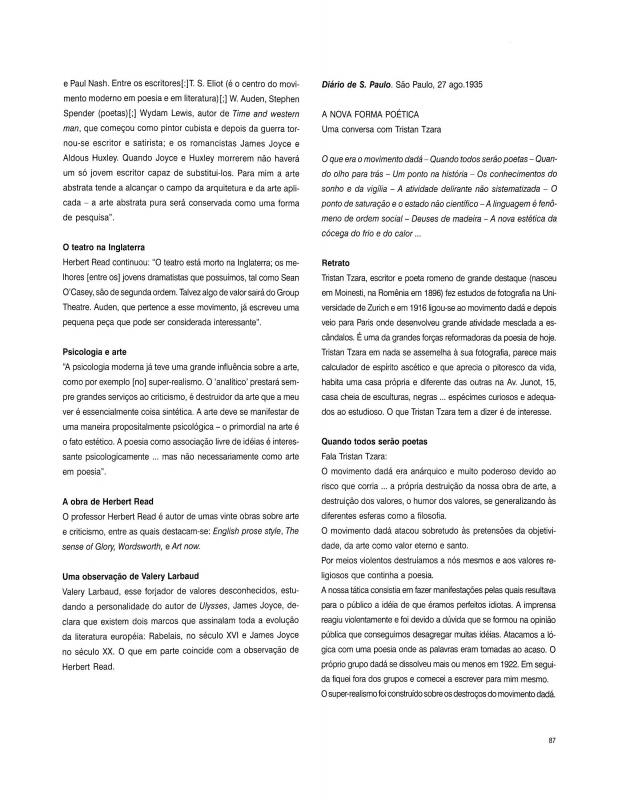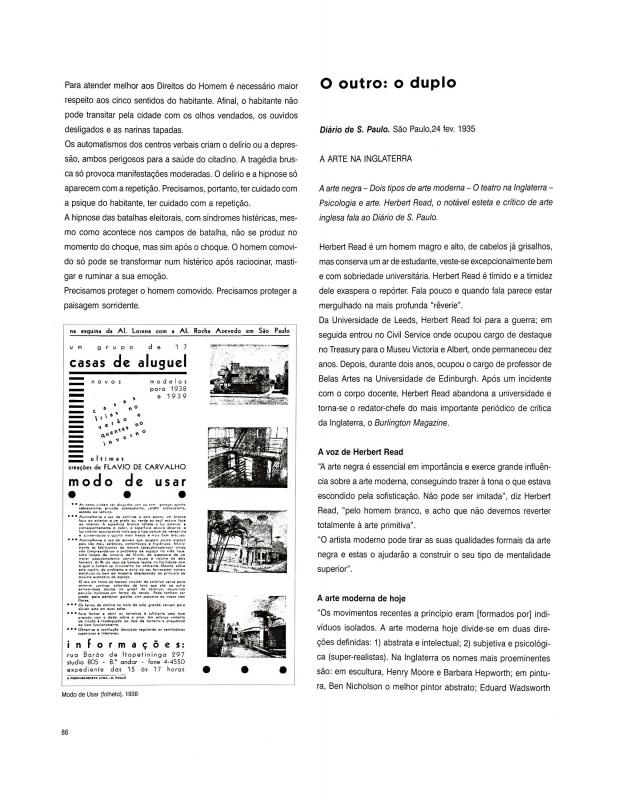The French intellectual Roger Callois (1913–1978) worked in the fields of philosophy, sociology, and literary criticism. He was active in avant-garde intellectual circles, where his contact with Georges Bataille led to the founding of the Collège de Sociologie. In a clear response to the dominant movement of the 1920s—Surrealism— Callois and Bataille decided that the institution they directed should focus less on the individual unconscious and fantasy, and spend more time on ritual power and community life. Callois’s profound and genuine interest in Latin America inspired him to promote greater awareness of that part of the world among his compatriots by introducing them to writers such as Jorge Luis Borges, Pablo Neruda, and Miguel Ángel Asturias, and by translating their works. Five years after this interview, when the Second World War broke out, Callois moved to Argentina, where he remained until the end of the war in 1945. During his self-imposed exile, he persistently attacked any Nazi-related activities he encountered.
This document reflects the interest expressed by the Brazilian artist Flávio de Carvalho (1899–1973) in Surrealism, Futurism, and modernism. It is one of the testimonies he collected during his trip to Europe in 1934, when he interviewed famous people who were involved with these movements, such as Man Ray, Tristan Tzara (see doc. no. 1110387), Herbert Read (see doc. no. 1110385), Roger Callois, and Tommaso Filippo Marinetti. The following year, de Carvalho published the results of his project in the São Paulo newspaper, Diário de S. Paulo.
In a predominantly figurative and nationalist milieu, Flávio de Carvalho (1899–1973) is one of the few Brazilian artists to express certain affinities with Dadaism and Surrealism. In addition to being a painter, he was also prone to provocative acts, such as his 1930 Experiência n.2, when he put on a broad-brimmed hat and paraded against the flow of a Catholic procession in downtown São Paulo. By destabilizing the social and moral status quo, he hoped to provoke situations that created emotional tension and social instability in order to study the resulting psychological reactions and the behavior of the masses when faced with a crisis. The interview with Roger Callois reflects the important role Flávio de Carvalho played in Brazilian art and intellectual circles, and is related to his obsessive desire to combat Brazilian cultural provincialism.


